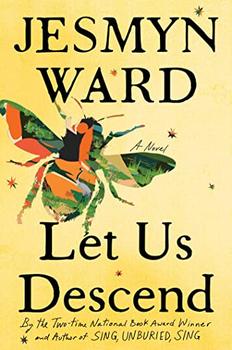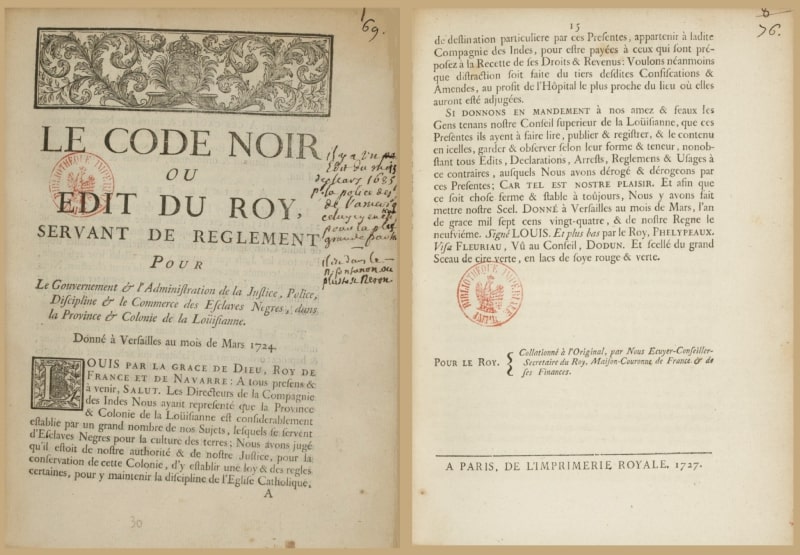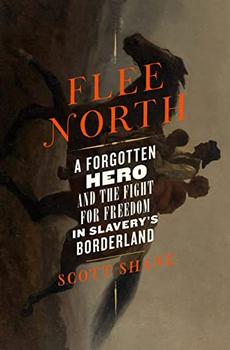Summary | Excerpt | Reading Guide | Reviews | Beyond the book | Read-Alikes | Genres & Themes | Author Bio

Critics' Opinion:
Readers' Opinion:
First Published:
Oct 2023, 320 pages
Paperback:
Sep 3, 2024, 320 pages
 Book Reviewed by:
Book Reviewed by:
Lisa Ahima
Buy This Book
From Jesmyn Ward—the two-time National Book Award winner, youngest winner of the Library of Congress Prize for Fiction, and MacArthur Fellow—comes a haunting masterpiece, sure to be an instant classic, about an enslaved girl in the years before the Civil War.
"'Let us descend,' the poet now began, 'and enter this blind world.'" —Inferno, Dante Alighieri
Let Us Descend is a reimagining of American slavery, as beautifully rendered as it is heart-wrenching. Searching, harrowing, replete with transcendent love, the novel is a journey from the rice fields of the Carolinas to the slave markets of New Orleans and into the fearsome heart of a Louisiana sugar plantation.
Annis, sold south by the white enslaver who fathered her, is the reader's guide through this hellscape. As she struggles through the miles-long march, Annis turns inward, seeking comfort from memories of her mother and stories of her African warrior grandmother. Throughout, she opens herself to a world beyond this world, one teeming with spirits: of earth and water, of myth and history; spirits who nurture and give, and those who manipulate and take. While Ward leads readers through the descent, this, her fourth novel, is ultimately a story of rebirth and reclamation.
From one of the most singularly brilliant and beloved writers of her generation, this miracle of a novel inscribes Black American grief and joy into the very land—the rich but unforgiving forests, swamps, and rivers of the American South. Let Us Descend is Jesmyn Ward's most magnificent novel yet, a masterwork for the ages.
Chapter 1: Mama's Bladed Hands
The first weapon I ever held was my mother's hand. I was a small child then, soft at the belly. On that night, my mother woke me and led me out to the Carolina woods, deep, deep into the murmuring trees, black with the sun's leaving. The bones in her fingers: blades in sheaths, but I did not know this yet. We walked until we came to a small clearing around a lightning-burnt tree, far from my sire's rambling cream house that sits beyond the rice fields. Far from my sire, who is as white as my mother is dark. Far from this man who says he owns us, from this man who drives my mother to a black thread in the dim closeness of his kitchen, where she spends most of her waking hours working to feed him and his two paunchy, milk-sallow children. I was bird-boned, my head brushing my mother's shoulder. On that night long ago, my mother knelt in the fractured tree's roots and dug out two long, thin limbs: one with a tip carved like a spear, the other wavy as a ...
By default, slavery offers its horrors as a tension. Annis's overwhelming grief as she loses people close to her is also a relatively expected narrative layer. Mama Aza's mystical, sometimes sinister presence is a fascinating, unexpected tension that complements Annis's experiences very well. But these tensions are not the only moving pieces of the plot as it unfolds: Ward's novel is also a coming-of-age story. Alongside the bleak reality of her life, readers grow up with Annis, hearing her interests and her desire for freedom, seeing how what freedom means to her evolves...continued
Full Review
 (819 words)
(819 words)
(Reviewed by Lisa Ahima).
 Anthony Doerr, author of Cloud Cuckoo Land and All The Light We Cannot See
In Let Us Descend, Jesmyn Ward resurrects an enslaved girl out of the lost folds of the antebellum South, twists magic through every raindrop, mushroom, and stalk of sugar cane, and drops you into the middle of her harrowing, unendurable, magnificent song. This is a gripping, mythic, bone-pulverizing descent into the grim darkness of American slavery—and yet somehow this novel simultaneously leaves you in awe of the human capacity to not only endure, but to ascend back to the light. A spectacular achievement.
Anthony Doerr, author of Cloud Cuckoo Land and All The Light We Cannot See
In Let Us Descend, Jesmyn Ward resurrects an enslaved girl out of the lost folds of the antebellum South, twists magic through every raindrop, mushroom, and stalk of sugar cane, and drops you into the middle of her harrowing, unendurable, magnificent song. This is a gripping, mythic, bone-pulverizing descent into the grim darkness of American slavery—and yet somehow this novel simultaneously leaves you in awe of the human capacity to not only endure, but to ascend back to the light. A spectacular achievement. Ta-Nehisi Coates
Jesmyn is, quite simply, the best of us.
Ta-Nehisi Coates
Jesmyn is, quite simply, the best of us. In Jesmyn Ward's Let Us Descend, one of Annis's enslavers is a woman. Typically, when people think about enslavers and those perpetuating slavery as a system, they often think about white men. Some may find it surprising that women played a significant role in the slave trade, too. Furthermore, white people were not the only ones who owned slaves or participated in upholding slavery. In Let Us Descend, one of the people facilitating Annis's sale is a free woman of color — a fact that reflects the reality of pre-Civil War New Orleans.
In Jesmyn Ward's Let Us Descend, one of Annis's enslavers is a woman. Typically, when people think about enslavers and those perpetuating slavery as a system, they often think about white men. Some may find it surprising that women played a significant role in the slave trade, too. Furthermore, white people were not the only ones who owned slaves or participated in upholding slavery. In Let Us Descend, one of the people facilitating Annis's sale is a free woman of color — a fact that reflects the reality of pre-Civil War New Orleans.
To examine how slavery functioned in the American South, it is imperative to understand the full scope of the slave trade, and many of us have an incomplete picture of this devastating history. One...

If you liked Let Us Descend, try these:

by Scott Shane
Published 2024
A riveting account of the extraordinary abolitionist, liberator, and writer Thomas Smallwood, who bought his own freedom, led hundreds out of slavery, and named the underground railroad, from Pulitzer Prize-winning author and journalist, Scott Shane. Flee North tells the story for the first time of an American hero all but lost to history.

by Percival Everett
Published 2024
A brilliant, action-packed reimagining of Adventures of Huckleberry Finn, both harrowing and ferociously funny, told from the enslaved Jim's point of view. From the "literary icon" (Oprah Daily) and Pulitzer Prize Finalist whose novel Erasure is the basis for Cord Jefferson's critically acclaimed film American Fiction.





The Flower Sisters
by Michelle Collins Anderson
From the new Fannie Flagg of the Ozarks, a richly-woven story of family, forgiveness, and reinvention.

The House on Biscayne Bay
by Chanel Cleeton
As death stalks a gothic mansion in Miami, the lives of two women intertwine as the past and present collide.

The Funeral Cryer by Wenyan Lu
Debut novelist Wenyan Lu brings us this witty yet profound story about one woman's midlife reawakening in contemporary rural China.
Your guide toexceptional books
BookBrowse seeks out and recommends the best in contemporary fiction and nonfiction—books that not only engage and entertain but also deepen our understanding of ourselves and the world around us.